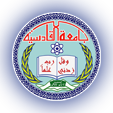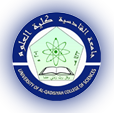Document Type
Original Study
Abstract
Differential equations are considered one of the important topics in applied mathematics, physics, and engineering. Thanks to technological progress, it has become possible to use technology in teaching differential equations in innovative and effective ways. The use of technology in teaching differential equations helps improve students’ understanding and enhance their abilities in solving practical and applied problems. The goal of the research is to indicate that the use of interactive software and applications allows the creation of a dynamic and interactive learning environment. Students can change equations and parameters and explore to learn about the results and relationships between them. The use of technology provides powerful analytical tools and simulations for differential equations. Students can analyze mathematical behavior graphically and visualize expected solutions. The study concluded that technology is available access to online educational resources, like educational videos, detailed learning materials, and discussion forums that help students understand basic concepts and apply them in solving problems. Using technology, students can perform digital experiments and simulations of complex differential equations that cannot be performed manually. They can change parameters and boundary conditions and explore their effect on solutions, which helps them on understanding the behavior of the equation and various interactions.
Keywords
Technology, Differential Equations, Practical Applications
Recommended Citation
Muslim, Mohsen Taher
(2024)
"Analysis of the use of technology in teaching differential equations and their practical applications,"
Al-Qadisiyah Journal of Pure Science: Vol. 29
:
No.
1
, Article 30.
Available at:
https://doi.org/10.29350/2411-3514.1277
Creative Commons License

This work is licensed under a Creative Commons Attribution-NonCommercial-No Derivative Works 4.0 International License.










